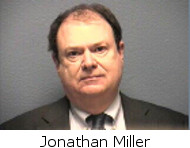4/27/2016
Texas Attorney General Bans Camera Use For Auto Insurance TicketsTexas attorney general issues opinion shutting down use of automated license plate readers to issue expired insurance tickets.

Jonathan Miller will not be selling his automated insurance citation system in Texas. On Monday, state Attorney General Ken Paxton shot down the proposal of Miller's firm, the Texas Public Safety Consortium, to deploy automated license plate readers (ALPR, also known as ANPR) in Bowie County to ticket motorists for driving with lapsed insurance.
Miller was behind a similar failed effort in Puerto Rico last year, then operating as the "National Public Safety Consortium." He is more commonly associated with his other company InsureNet, which led an ultimately unsuccessful insurance ticketing effort in Oklahoma and several other states. Miller has been desperate to do business in the Lone Star State, having worked to influence state officials there for more nearly a decade.
"What is proposed herein can accomplish four important tasks for Texas," Miller wrote in a 31-page presentation prepared for then-Texas Governor Rick Perry. "It can generate an estimated $1.295 billion dollars in new gross revenues by simply enforcing the state's existing laws and do this without cost of any kind to government or insurers."
To the annoyance of InsureNet investors, the promised windfall never materialized. Despite heavy investment in well connected lobbyists and celebrities like football legend Barry Switzer, the insurance ticketing programs have never panned out in any state. Miller's "exclusive" connections with the National Law Enforcement Telecommunications System (NLETS) were supposed to be the key to ensuring no other photo ticketing company would be able to compete for the insurance ticketing business.
"This NLETS-hosted and approved solution, (the only system hosted or approved by NLETS), was developed specifically by and for law enforcement to provide accurate, instant, non-invasive vehicle insurance verification," Miller wrote to then-Governor Perry.
The claimed exclusivity is what allowed recent deals such as the one with Puerto Rico to come in the form of no-bid contracts. As a 501(c)3 non-profit organization, however, NLETS would have a hard time explaining a truly exclusive arrangement if it did keep other automated ticketing industry competitors from attempting to offer a similar service. Such a service would never fly in Texas because state law only gives authority to cities and counties to use of a red light camera system.
"The system may be used 'only for the purpose of detecting a violation or suspected violation of a traffic-control signal,' and it is an offense to use the system to create an image in any other manner or for any other purpose," Texas Attorney General Ken Paxton wrote in his formal opinion. "These provisions illustrate that when the legislature has authorized automated photographic or similar technology for the enforcement of traffic or vehicular laws, it has been specific about the circumstances and permissible uses of the technology. It has enacted no law granting counties authority to utilize an automated photographic insurance enforcement system."
Paxton's opinion also ends efforts by counties to deploy speed camera systems. A copy of the attorney general's opinion is available in a 140k PDF file at the source link below.


